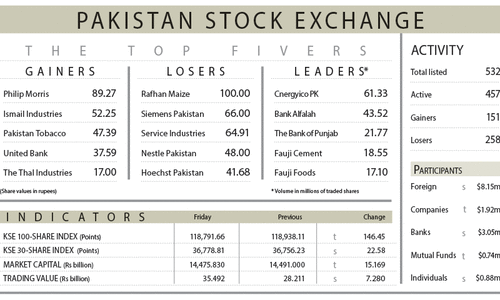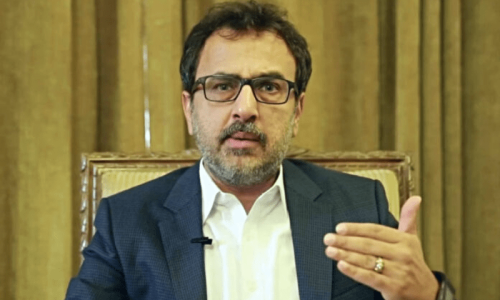The traditional means and methods used to achieve ambitious economic goals driven by profit maximisation, particularly in emerging economies, is simply not ecologically sustainable. Climate change is no longer an approaching threat, it has become a real one, resulting in climate-induced disasters such as floods, droughts, earthquakes, hurricanes, severe rainfalls, wildfires, haze, typhoons, and extreme hot and cold weathers at a scale and scope the world has never seen before.
The urgency of environmental protection has become so intense that the United Nations secretary remarked in his speech at the 2018 Climate Change Conference that it has become an issue of life and death for humans, regions and countries.
Consequently, the United Nations initiated the United Nations Environmental Programme to identify policy options to ensure environmental targets set forth under the Paris Agreement and the Kyoto Protocol are met. The G20 created the Green Finance Study Group for the promotion of green investment among member countries and the International Finance Corporation, in coordination with the World Bank Group, established the Sustainable Banking Network (SBN) to provide a platform to financial regulators of emerging countries, including Pakistan. Their purpose is the development of methods to mobilise capital to achieve national green and sustainable development targets.
In this context, environmental statistics shows that Pakistan is highly prone to climate change, wreaking havoc on people’s livelihoods and causing fatalities. Pakistan was nearly at the bottom, ranking 169 out of 180 countries on the Environmental Performance Index presented at the World Economic Forum 2018, which was based on the progress of 24 indicators related to ecosystem health and vitality.
Likewise, Pakistan was among the top ten worst performing economies in the Country Sustainability Ranking 2019, which is developed by RobecoSAM and is based on a nation’s progress in environmental, social and governance management. As per the global climate risk index 2020, prepared by GermanWatch, Pakistan is declared the 5th most affected country by climate-triggered catastrophes during 1999-2018, resulting in a number of human fatalities and economic damages worth $3.793 billion.
After the development of green policy guidelines, the SBP has to chalk out regulatory and industry-led interventions for bringing about a behavioural change among the banking sector’s top financial managers
Therefore, following global initiatives, the State Bank of Pakistan (SBP) issued Green Banking Guidelines (GBGs) in 2017 to provide technical guidelines to financial institutions for risk management to reduce vulnerabilities stemming from a project’s environmental risk exposure and to scale up green investment in Pakistan.
Green finance refers to the funding of investment projects that have sustainably positive environmental, social and economic impacts. Pakistan has abundant green opportunities in areas such as renewable energy, resource recycling, climate-smart agricultural production, clean transport green buildings, sustainable water and land management and hence is ripe for an advanced green financial market in Asia.
However, it faces a range of market, institutional and policy barriers that prevent scaling up of green capital flows. Availability of green capital is a key enabler to realise the multiple targets set under the United Nation’s Sustainable Development Goals and the agenda of Pakistan’s national vision 2025.
Concerning Pakistan’s policy progress on the promotion of green finance, SBN reports provide meaningful insights. Since 2018, the SBN has been using a progressive matrix (PM) to track the progress of member countries on green-policy adoption and actions.
The PM is based on three developmental stages — preparation, implementation and maturing — and each stage is split into two sub-stages. Pakistan is positioned at the developing phase of the implementation stage on SBN’s progression matrix in
- That matrix further highlighted that only China and Indonesia have reached the initial sub-stage of the maturing phase in the development cycle.
Though Pakistan has shown slight progress on developing the culture of green investment, it is still lagging behind other emerging Asian countries such as Bangladesh, Indonesia, Vietnam and Mongolia. After the development of green policy guidelines, the next step for the SBP is to chalk out regulatory and industry-led policy interventions for bringing about behavioural change among top financial managers working in the banking sector.
The establishment of monitoring and supervisory mechanisms to ensure systematic implementation of GBGs, initiation of a regime of mandatory reporting of green investment portfolios in annual reports, launching specially designed training and development programmes to enhance capacity building of banking staff to enable them to carry out credit risk analysis in conjunction with environmental and social risks inherently associated with each green investment project are all essential aspects.
And finally, banks should be encouraged to adopt the successful green methodological approaches of Asian countries, particularly China and Indonesia, which are currently at the mature stage of the green market.
These bank-centred recommendations are made on the factual estimation in the SBN report 2019 that emerging economies require a funding of $70 trillion by 2030 to achieve sustainable development projects that are in line with their national priorities. Banks operating in emerging economies held assets worth $50tr by June 2018, signalling that banks have great leverage in determining the pace at which conventional emerging economy transitions into a resource-efficient and climate-resilient one.
The writer is a professor at the Institute of Business Administration, University of Sindh
Published in Dawn, The Business and Finance Weekly, March 23rd, 2020
















































